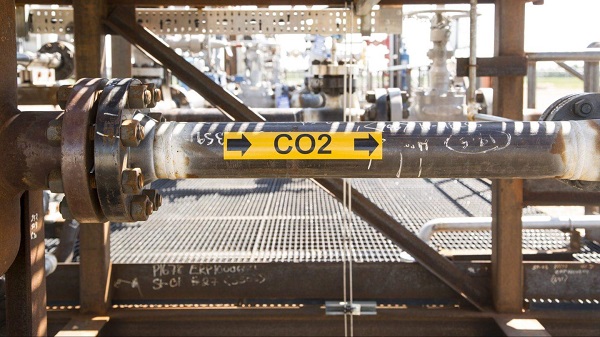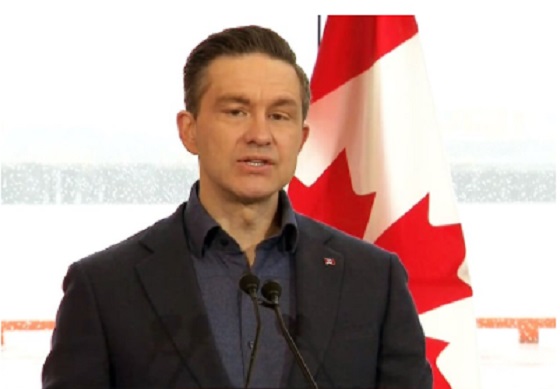Alberta
Clean energy think tank says Alberta has the resources to lead Canada in carbon capture and storage

From the Canadian Energy Centre
By Cody Ciona
In August, two new CCS projects in the province got the green light to proceed
Alberta has strategic advantages in carbon capture and storage (CCS), a core technology to achieve carbon neutrality, says a director with the low-carbon energy think tank Clean Prosperity.
“I think it’s important for us to remember that we have the people, we have the geography and we have that great policy environment to be able to lead on CCS across the country,” Adam Sweet said during a recent webinar.
According to the International Energy Agency, 45 commercial CCS facilities are in operation worldwide.
Alberta has five operational CCS projects, which have stored roughly 14 million tonnes of CO2, and dozens more projects are in various development stages.
The province is situated atop the Western Canada Sedimentary Basin, which boasts an abundance of potential storage space for captured carbon.
According to a study by Clean Prosperity, Alberta has around 79,000 megatonnes of pore space available in underground saline aquifers and mature or depleted oil and gas wells.
“One of the main reasons why CCS is so big in Alberta is, frankly, we have the geology,” said Sweet.
In August, two new CCS projects in Alberta got the green light to proceed.
Shell and partner ATCO EnPower announced they will build a new CCS project at the Scotford refinery and chemicals complex near Edmonton, while on a smaller scale, Entropy Inc. will add a second phase of CCS at its Glacier gas plant near Grande Prairie.
Combined, the projects are expected to capture and store about 810,000 tonnes of CO2 per year, the equivalent of taking nearly 200,000 cars off the road annually. Entropy’s project is to start in 2026 and Shell/ATCO’s in 2028.
Sweet said that in addition to Alberta’s geological ability to store vast quantities of CO2 underground, the province has advantages including the Technology Innovation and Emissions Reduction (TIER) regulation, an industrial carbon price that has existed for nearly 20 years.
This regulation covers around 60 per cent of Alberta’s total emissions and around half of Canada’s total industrial emissions, according to Clean Prosperity. The ability to generate carbon credits makes TIER attractive for companies considering CCS.
“Those facilities that invest in carbon capture and storage and can reduce or can create these carbon credits by coming underneath the benchmark, they can then sell those carbon credits,” said Sweet.
He said that in addition to the TIER regulation, Alberta’s expertise and knowledge of energy production are another key asset that makes it an attractive jurisdiction for CCS.
“We often forget that we have knowledge and experience of working underground, as well as working with everything from the valves to the pipes and all the different pieces that exist in this low carbon energy economy.”
Government support is helping drive new CCS development.
Alberta is finalizing its carbon capture incentive program, which covers up to 12 per cent of eligible capital costs, while the federal government has implemented its CCS investment tax credit, which covers up to 60 per cent of capture equipment and 37.5 per cent of the cost for transportation, storage or usage equipment.
Both governments have supported CCS projects in the past: Shell’s $1.3 billion Quest project received $745 million from Alberta’s government and $120 million from Ottawa, while the $1.2 billion Alberta Carbon Trunk Line received $495 million from Alberta and $63.2 million from the federal government.
Alberta
Alberta takes big step towards shorter wait times and higher quality health care

From the Fraser Institute
On Monday, the Smith government announced that beginning next year it will change the way it funds surgeries in Alberta. This is a big step towards unlocking the ability of Alberta’s health-care system to provide more, better and faster services for the same or possibly fewer dollars.
To understand the significance of this change, you must understand the consequences of the current (and outdated) approach.
Currently, the Alberta government pays a lump sum of money to hospitals each year. Consequently, hospitals perceive patients as a drain on their budgets. From the hospital’s perspective, there’s little financial incentive to serve more patients, operate more efficiently and provide superior quality services.
Consider what would happen if your local grocery store received a giant bag of money each year to feed people. The number of items would quickly decline to whatever was most convenient for the store to provide. (Have a favourite cereal? Too bad.) Store hours would become less convenient for customers, alongside a general decline in overall service. This type of grocery store, like an Alberta hospital, is actually financially better off (that is, it saves money) if you go elsewhere.
The Smith government plans to flip this entire system on its head, to the benefit of patients and taxpayers. Instead of handing out bags of money each year to providers, the new system—known as “activity-based funding”—will pay health-care providers for each patient they treat, based on the patient’s particular condition and important factors that may add complexity or cost to their care.
This turns patients from a drain on budgets into a source of additional revenue. The result, as has been demonstrated in other universal health-care systems worldwide, is more services delivered using existing health-care infrastructure, lower wait times, improved quality of care, improved access to medical technologies, and less waste.
In other words, Albertans will receive far better value from their health-care system, which is currently among the most expensive in the world. And relief can’t come soon enough—for example, last year in Alberta the median wait time for orthopedic surgeries including hip and knee replacements was 66.8 weeks.
The naysayers argue this approach will undermine the province’s universal system and hurt patients. But by allowing a spectrum of providers to compete for the delivery of quality care, Alberta will follow the lead of other more successful universal health-care systems in countries such as Australia, Germany, the Netherlands and Switzerland and create greater accountability for hospitals and other health-care providers. Taxpayers will get a much better picture of what they’re paying for and how much they pay.
Again, Alberta is not exploring an untested policy. Almost every other developed country with universal health care uses some form of “activity-based funding” for hospital and surgical care. And remember, we already spend more on health care than our counterparts in nearly all of these countries yet endure longer wait times and poorer access to services generally, in part because of how we pay for surgical care.
While the devil is always in the details, and while it’s still possible for the Alberta government to get this wrong, Monday’s announcement is a big step in the right direction. A funding model that puts patients first will get Albertans more of the high-quality health care they already pay for in a timelier fashion. And provide to other provinces an example of bold health-care reform.
Alberta
Alberta’s embrace of activity-based funding is great news for patients

 From the Montreal Economic Institute
From the Montreal Economic Institute
Alberta’s move to fund acute care services through activity-based funding follows best practices internationally, points out an MEI researcher following an announcement made by Premier Danielle Smith earlier today.
“For too long, the way hospitals were funded in Alberta incentivized treating fewer patients, contributing to our long wait times,” explains Krystle Wittevrongel, director of research at the MEI. “International experience has shown that, with the proper funding models in place, health systems become more efficient to the benefit of patients.”
Currently, Alberta’s hospitals are financed under a system called “global budgeting.” This involves allocating a pre-set amount of funding to pay for a specific number of services based on previous years’ budgets.
Under the government’s newly proposed funding system, hospitals receive a fixed payment for each treatment delivered.
An Economic Note published by the MEI last year showed that Quebec’s gradual adoption of activity-based funding led to higher productivity and lower costs in the province’s health system.
Notably, the province observed that the per-procedure cost of MRIs fell by four per cent as the number of procedures performed increased by 22 per cent.
In the radiology and oncology sector, it observed productivity increases of 26 per cent while procedure costs decreased by seven per cent.
“Being able to perform more surgeries, at lower costs, and within shorter timelines is exactly what Alberta’s patients need, and Premier Smith understands that,” continued Mrs. Wittevrongel. “Today’s announcement is a good first step, and we look forward to seeing a successful roll-out once appropriate funding levels per procedure are set.”
The governments expects to roll-out this new funding model for select procedures starting in 2026.
* * *
The MEI is an independent public policy think tank with offices in Montreal, Ottawa, and Calgary. Through its publications, media appearances, and advisory services to policymakers, the MEI stimulates public policy debate and reforms based on sound economics and entrepreneurship.
-

 Bruce Dowbiggin2 days ago
Bruce Dowbiggin2 days agoBettman Gives Rogers Keys To The Empire. Nothing Will Change
-

 2025 Federal Election2 days ago
2025 Federal Election2 days agoPoilievre Will Bring in ‘One and Done’ Resource Approvals, and Ten Specific Projects Including LNG Canada Phase II
-

 2025 Federal Election2 days ago
2025 Federal Election2 days agoElection Security Briefing Confirms CCP-Linked Operation Boosted Carney
-

 conflict1 day ago
conflict1 day agoZelensky Alleges Chinese Nationals Fighting for Russia, Calls for Global Response
-

 2025 Federal Election1 day ago
2025 Federal Election1 day agoHarper Endorses Poilievre at Historic Edmonton Rally: “This Crisis Was Made in Canada”
-

 2025 Federal Election1 day ago
2025 Federal Election1 day agoAn In-Depth Campaign Trail “Interview” With Pierre Poilievre
-

 Alberta19 hours ago
Alberta19 hours agoAlberta’s embrace of activity-based funding is great news for patients
-

 John Stossel19 hours ago
John Stossel19 hours agoGovernment Gambling Hypocrisy: Bad Odds and No Competition










